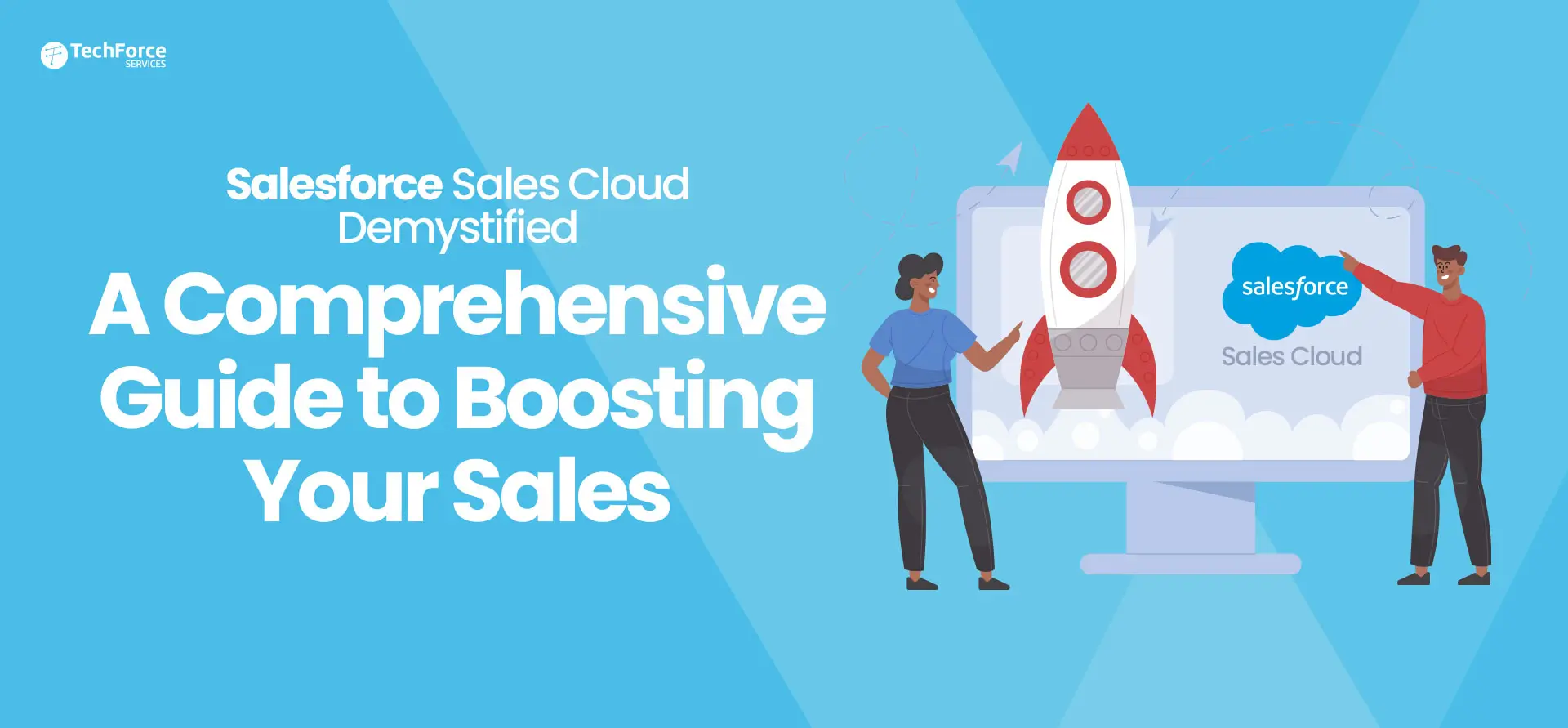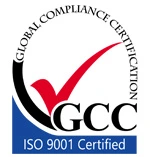Introduction
In today’s fast business environment, sales teams are weighed down by a lot of challenges to meet their target and drive revenue growth. Salesforce Sales Cloud emerges as an all-inclusive solution incorporating various tools and features which effectively address these challenges. From managing leads to tracking opportunities to analytics, it allows companies to streamline their sales processes, increase productivity and ultimately improve their sales performance.
Understanding the Key Features of Salesforce Sales Cloud
Salesforce Cloud comes with an extensive set of functionalities that can help boost sales operations. Here are some key features that make Sales Cloud such a force in enhancing sales productivity:
1. Boosting Productivity for the Selling Team
For instance, customizable dashboards, activity automation and email integration are some of the productivity enhancement tools availed through Sales Cloud. This way, the team is able to concentrate on high value activities, prioritize tasks and stay organized hence maximizing efficiency and effectiveness in closing deals.
Streamlining Business Sales Process with Salesforce Sales Cloud
Sales processes sometimes become complicated and twisted which makes it impossible to be effective and to benefit from opportunities. Salesforce Sales Cloud in this case provides a sales process that is simple, thus making it more flexible and adaptable for a company’s customers.
1. Making Sales Processes Simplest
By standardizing workflows, automating repetitive tasks, and providing real-time visibility into sales activities, companies can better manage their team’s workflow and also achieve faster deal closing as well as improved customer satisfaction according to Salesforce.com.
Benefits of Implementing Salesforce Sales Cloud for Sales Teams
Salesforce sales cloud implementation results in numerous benefits for sales teams that range from increased efficiency up to better cooperation among the organizational members and analytical decision-making.
1. Increased Efficiency of Selling
The centralization of lead management, contacts and opportunities on the salesforce cloud eliminates the need to use different systems or manual data entries by sellers. In addition to that routine activities are automated while up-to-date status reports will be received through mobile devices hence leading to more time conscious agents who can close deals easily.
Demystification of Lead Management and Conversion Optimization
Although lead management and conversion optimization are central to the sales process, they can be difficult to navigate. However, Salesforce Sales Cloud makes it easier by providing great tools and strategies.
1. Strategies for Managing Leads
Sales Cloud is a strong software that enables companies to effectively screen capture, qualify and nurture leads. It therefore helps them in focusing on promising leads through tools like automated follow-up, lead scoring and assignment rules which imply higher conversion rates as well as more revenues.
2. Techniques for Optimizing Conversions
Apart from managing leads, Sales Cloud also provides several methods of boosting conversion rates and generating more revenue. This can be achieved through interpreting salesforce data cloud, spotting patterns or relying on predictive analysis so as to spot any constraints during sales processes whereby they can improve their strategies in order to gain the most gains from closing deals.
Empowering Sales Managers with Insights and Analytics
Efficient sales management depends upon real-time insights that are actionable. By doing so, Salesforce Sales Cloud provides complete analytics toolkits enabling decision-making for the managers involved in the sales sector.
1. Comprehensive Analytics Tools
Sales Cloud is equipped with various tools for analytics including customizable dashboards, reports and forecasting capabilities. With these tools in place, sales managers can monitor key performance indicators (KPIs), identify trends and learn valuable sales performance insights which allow them to optimize their strategies, effectively allocate resources and grow their businesses.
Enhancing Sales Performance with Salesforce Einstein
Salesforce Einstein is the artificial intelligence (AI) platform that has been embedded within Sales Cloud; it offers a range of advanced techniques to help drive growth and improve your sales performance.
1. Leveraging AI for Sales
By employing machine learning algorithms, Einstein is able to analyze huge amounts of data in order to predict individual customer actions as well as making personalized recommendations for sales teams. By helping the sales team work smarter not harder through identifying the best leads, automating routine tasks or even unearthing hidden insights among others.
Implementing Salesforce Sales Cloud Effectively for Sales Growth
Implementing Salesforce Sales Cloud does not end at installing software; this is a strategic move meant to shift your mode of operation and spearhead growth. To attain success, companies must follow structured methodologies that entail planning, execution and continuous optimization.

1.Step-by-Step Implementation Guide
A successful salesforce implementation Guide begins with careful planning and preparation. Here is a step-by-step guide to help you navigate through the process of implementation:
Define Objectives: Clearly define your objectives for implementing Sales Cloud. Whether it’s about making sales more efficient, generating more revenue or better customer service; having clear goals will influence how you implement this.
Assess Requirements: Assess your business requirements and identify which features and functionalities of Sales Cloud can fit into them. Consideration may also be made on factors such as lead management, opportunity tracking, reporting and Data integration with existing systems.
Create a Roadmap: Create a comprehensive implementation roadmap detailing the duties, milestones and timelines for every stage of the project. Divide the implementation process into bite-sized pieces to ensure that transition is smooth.
Data Migration: Plan and execute the transfer of data from previous systems to Sales Cloud. Purify and validate data to guarantee accuracy and integrity. Think about involving data migration experts or using Salesforce data tools in order to make it less hectic.
Customization: You can customize Sales Cloud to meet your unique business requirements. Align sales processes, workflows and user interfaces with sales strategy to achieve streamlining of operations. For complicated customization needs, Salesforce customization features or the services of experts from Salesforce consultants could be utilized.
User Training: Provide comprehensive training for the sales team and other stakeholders on how to effectively use Sales Cloud. Hands-on sessions, online resources and user documentations that would ensure adoption by users and proficiency.
Go-Live and Support: Implement Sales Cloud and track its performance after implementation. Offer ongoing support and troubleshooting as well as dealing away with issues or challenges should occur. Users’ feedback will be useful for system enhancement among others.
2. Best Practices for Success
In addition to implementation, optimization and adoption are critical elements of success towards realizing the full potential of Sales Cloud. The following are some practices that guarantee success:
Data Management: Establish data management best practices around clean, accurate, up-to-date data in Salesforce data Cloud. Data quality is maintained through this approach which involves data validation rules, deduplication processes and data governance policies.
Process Automation: Therefore, leverage the sales cloud advanced tools to ease and eliminate redundant duties. Automate lead routing, assignment of tasks, email alerts among others that are routine for improved efficiency and effectiveness.
User Adoption: The user adoption on the other hand can be achieved by highlighting the benefits of Sales Cloud and providing continuous training and support to users. It is important to encourage feedback from users in order to address all concerns or resistance toward change proactively.
Performance Monitoring: Performance monitoring in the sales cloud involves keeping track of key performance metrics as well as analytic tools. Sales performance, pipeline health, revenue trends are insights that can be obtained using dashboards, reports and analytics tools.
Continuous Improvement: Consistently assess your Sales Cloud configuration and sales processes to facilitate continuous improvement. Ensure you stay abreast with new features and updates from Salesforce CRM so that they become part of your implementation as required.
Conclusion: Elevating Your Sales Strategy with Salesforce Sales Cloud
In conclusion, Salesforce Sales Cloud provides a complete suite of tools and capabilities designed for streamlining the sales process, optimizing performance and driving growth. By maximizing its powerful features, businesses can get an edge over their competitors while also increasing the efficiency of their sales team thereby boosting overall corporate. Whether you’re a small startup or a large enterprise, Sales Cloud has the potential to transform your sales operations and propel your business forward in today’s dynamic marketplace.












